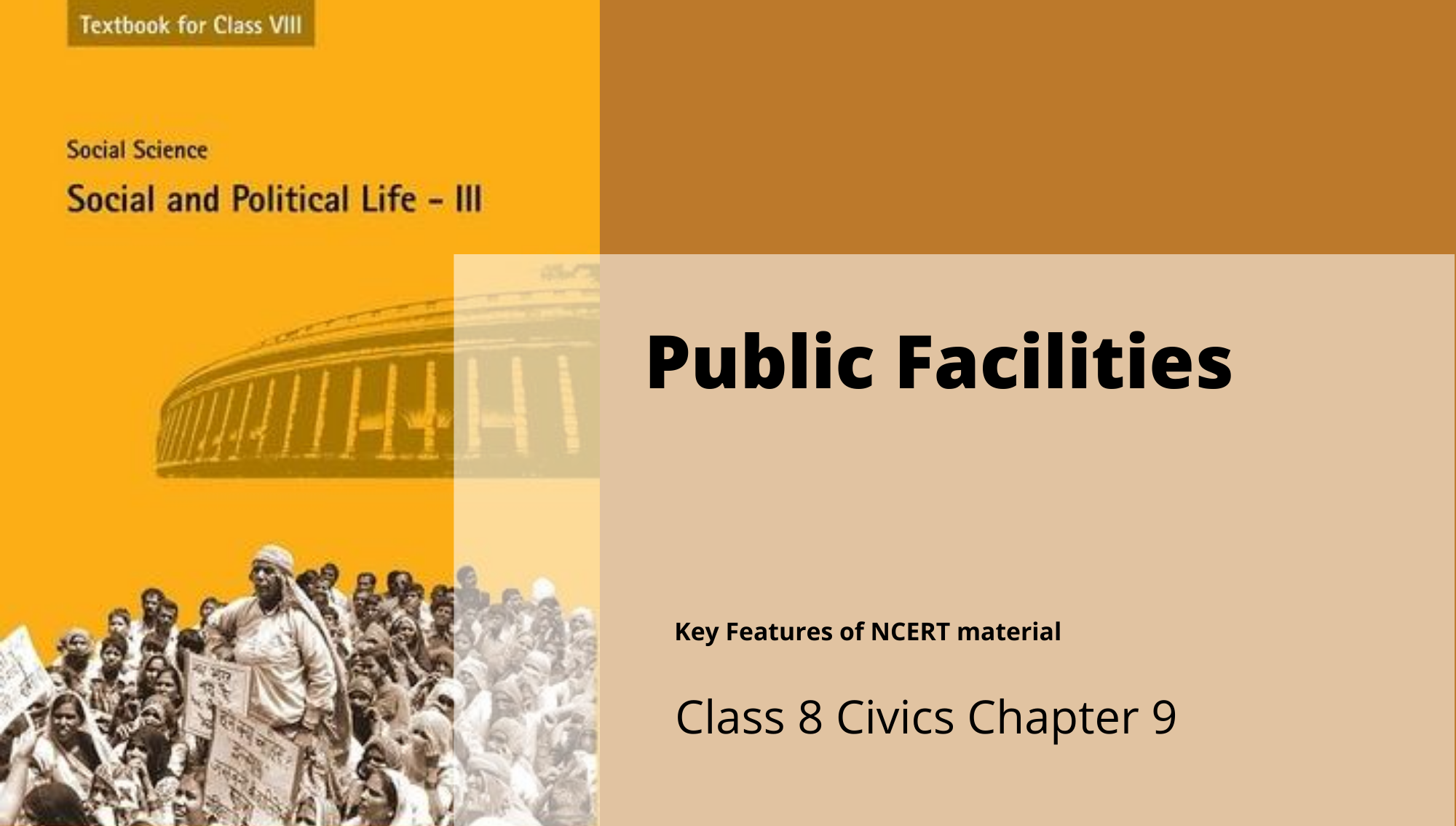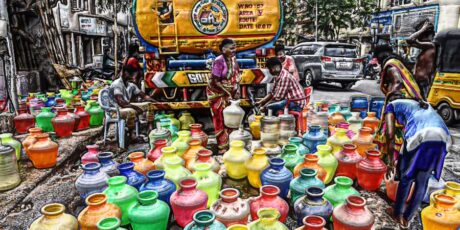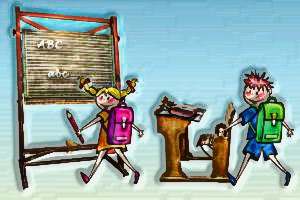Public Facilities: Class 8 Civics NCERT Chapter 9

Key Features of NCERT Material for Class 8 Civics Chapter 9 – Public Facilities
In the last chapter 8, you learned about Confronting Marginalisation. In this chapter you will learn about Public facilities. It use water as an essential guide to discuss public facilities. Significantly, the students understand plainly what is implied by the possibility of available facilities and why the administration needs to assume a vital job in their provision and, hence, assume generally liability. Students can get familiar with the concepts altogether and revise the Chapter well for the test with the assistance of CBSE Notes Class 8 Civics Chapter 9-Public Facilities. Browsing through these CBSE Class 8 Civics Notes will help the students plan all the more capability for the test.
Quick revision notes
Public facilities are the facilities given to the individuals by the administration. They are essential to sustain and have a peaceful existence.
Water and the People of Chennai:

Mr. Ramgopal lives in Anna Nagar, Chennai. This region looks lush and green, with lawns kept up by generous spraying of water.
Likewise, in a loft where Mr.Subramaniam lives, water supply is insufficient. They need to spend Rs 500-600 every month to purchase water.
Siva lives in Madipakkam, Chennai. She gets water once every 4 days. For drinking, she buys filtered water.
Water as a public utility is accessible in various amounts to various individuals.
Safe drinking water comes under the fundamental right of an individual, and it is the government’s responsibility to provide it to the people.
Water as one of the Fundamental Rights to Life:
Water is essential forever and for good wellbeing.
India probably has the largest number of causes of water-related diseases such as loose bowels, dysentery, cholera. Above 1600 Indians, mostly youngsters beneath the age of five, kick the bucket each day because of water-related diseases.
The Constitution of India recognizes the option to water as being some portion of the Right to Life under Article 21. That means there should be no restriction on water and should be “universally accessible.”
The High Courts and Supreme Court have held that the privilege of safe drinking water is a Fundamental Right.
Verdicts given by courts make it the government’s responsibility to ensure the supply of fresh drinking water.
Public Facilities:

Things like power, public transport, schools, and colleges, etc., which are necessary for survival, are known as available facilities.
Public facilities are given so that numerous individuals can share their benefits.
This is the government’s responsibility to unveil facilities accessible to each person, and nobody should be discriminated against just based on social or financial division.
The Government’s Role:
Out of all the functions, the most remarkable functions of the administration is to ensure that these public facilities are accessible to everybody:
Making provision for training and setting up of schools and colleges.
Improving wellbeing and sanitation facilities.
Ensuring the equivalent distribution of food all through the nation.
Improving the means of transport
Upkeep of public utility works like post offices, railways, and roads.
Privately owned businesses work for benefit in the market. Public facilities are identified with individuals’ basic needs.
The primary source of income for the administration is the taxes gathered from the individuals, and the legislature is enabled to collect these taxes and use them for such programs.
For instance, to supply water, the administration has to cause costs in siphoning water, conveying it over significant distances, setting downpipes for its distribution, treating the water for impurities lastly, gathering and treating wastewater.
It meets these expenses mostly from the various taxes it collects and incompletely charges a cost for water. This cost is set so that most individuals can manage the price of a specific least measure of water for everyday use.
One of the most significant tasks of government is to ensure the accessibility of resources to everybody.
By making the administration strict and viably actualizing, the schemes government can help underprivileged.
By using the income gathered in better social schemes and using the resources in a better way, the administration can ensure the prosperity to limit the populace.
Water supply to Chennai: is it Available to All ?
The water supply in Chennai is set apart by the shortage. Civil supply meets just about a large portion of the needs of the city’s individuals on a normal basis.
The weight of shortfalls in water supply falls mostly on poor people.
In search of Alternatives, the shortage and intense crisis scenario throughout the summer months are basic to different cities of India.
A shortage of civil water is regularly taken as a sign of disappointment in the legislature.
All throughout the world, water supply is the responsibility of the administration. There are not many instances of private water supply.
In this time of industrialization, water contamination has become a significant issue.
To benefit the pristine drinking water to a considerable populace should be possible through the innovative progression, which needs investment by the administration.
Conclusion:
Public facilities are identified with our basic needs, and the Indian Constitution has perceived the option to water, wellbeing, instruction, and so on as being some portion of the Right to Life.
The critical job of the administration is to ensure adequate public facilities for everybody.
Public facilities allowed everybody to offer rise to better living indices and help any nation get perceived at the international level in terms of improvement.
Any legislature’s success is also recognized through the facilities, and basic needs given to all the individuals.
These facilities, at long last, become the structure blocks of the improvement of a country.

